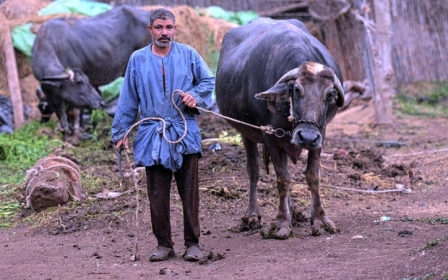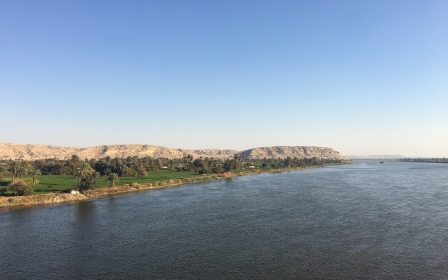Egypt, Ethiopia agree to settle differences over Nile mega-dam

The leaders of Ethiopia and Egypt vowed on Sunday to iron out their differences over a dam Addis Ababa is building on the Nile River that Cairo fears may threaten its water supplies.
Talks over the Grand Renaissance Dam, Ethiopia's $4bn hydroelectric project, have been deadlocked for months. Still, at a news conference in Cairo, Ethiopian Prime Minister Abiy Ahmed and Egyptian President Abdel Fattah el-Sisi signalled they had made a breakthrough.
"We have come a long way in building confidence and strengthening bilateral cooperation," Sisi said.
Ahmed, speaking in his native Amharic language, said Ethiopia was committed to ensuring Egypt's share of Nile water.
"We will take care of the Nile and we will preserve your share and we will work to increase this quota and President Sisi and I will work on this," Ahmed said, addressing Egyptians.
Safeguarding Egypt's share of the Nile, its main source of drinking water and water for industry and farming, is at the top of Sisi's agenda as he begins his second term in office.
The two sides agreed to take steps to put into effect an agreement - which also includes Sudan - to set up a fund for investing in infrastructure in the three countries.
Towards the end of their news conference, Sisi asked Ahmed to swear to God before the Egyptian people that he will not hurt Egypt's share of the Nile.
"I swear to God, we will never harm you," Ahmed repeated the words in Arabic after Sisi.
On Monday, Egypt allowed 32 Ethiopian prisoners to fly home, sources said. The prisoners, who had been detained for minor breaches including trespass and immigration offences, flew home on the same plane as the Ethiopian prime minister, diplomatic and airport sources said.
Middle East Eye propose une couverture et une analyse indépendantes et incomparables du Moyen-Orient, de l’Afrique du Nord et d’autres régions du monde. Pour en savoir plus sur la reprise de ce contenu et les frais qui s’appliquent, veuillez remplir ce formulaire [en anglais]. Pour en savoir plus sur MEE, cliquez ici [en anglais].




